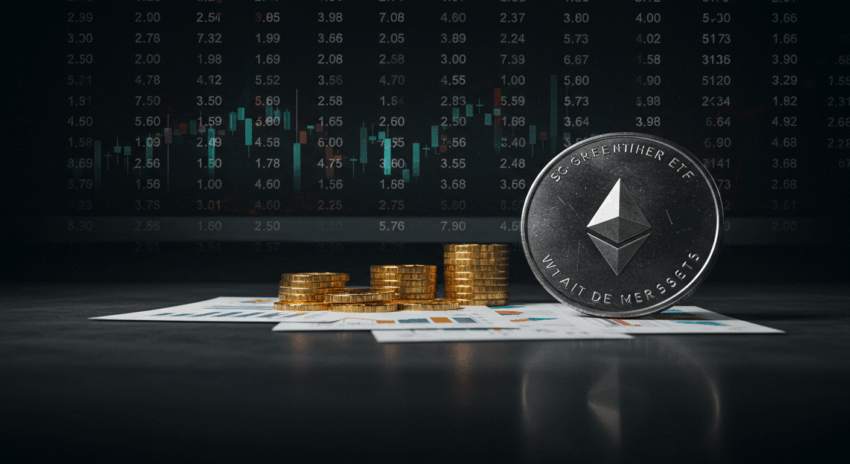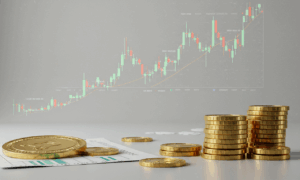The world of investment products just experienced a seismic shift, and if you have even a passing interest in where your money could go, this is news you need to understand. In a landmark decision, regulators have given a green light to a new type of financial product that bridges the gap between traditional markets and the burgeoning world of digital assets: the spot Ether ETF. This isn’t just jargon for tech enthusiasts; it’s a development that could fundamentally change how everyday investors access a major digital currency, making it as simple as buying a share of a well-known company. This article will deconstruct what this approval means, how these products work, and the potential implications for your investment strategy.
What Exactly Happened? The SEC’s Green Light Explained
In late May 2024, the U.S. Securities and Exchange Commission (SEC), the primary regulator of the nation’s financial markets, approved key filings for several spot Ether exchange-traded funds (ETFs). To grasp the significance of this, we need to break down the terminology.
- ETF (Exchange-Traded Fund): Think of an ETF as a basket of assets. Instead of buying dozens of different stocks individually, you can buy one share of an ETF that holds all of them. This single share trades on a stock exchange, like the New York Stock Exchange, just like a regular stock. It’s a popular way to achieve diversification and access specific markets or industries.
- Ether (ETH): This is the native cryptocurrency of the Ethereum blockchain. While Bitcoin is often called digital gold, Ethereum is more like a decentralized global computer. It allows developers to build applications and run smart contracts, making it a foundational technology for much of the crypto world.
- Spot ETF: This is the crucial part. A spot ETF directly owns and holds the underlying asset it’s supposed to track. In this case, a spot Ether ETF will purchase and store actual Ether coins in secure digital vaults. This is different from a futures ETF, which tracks the price of an asset through derivative contracts without actually owning the asset itself.
So, when the SEC approved these filings, it essentially paved the way for major financial institutions like BlackRock, Fidelity, and Grayscale to create and list funds on public stock exchanges that are directly backed by real Ether. This is a monumental step in the validation and integration of digital assets into mainstream finance.
Beyond Bitcoin: Why the Ether Approval is a Game-Changer
Earlier in the year, the financial world was abuzz with the approval of spot Bitcoin ETFs. That was a watershed moment, but the approval of Ether ETFs is arguably just as, if not more, significant. Here’s why:
First, it establishes a precedent. The approval of Bitcoin ETFs could have been seen as a one-off event, an exception made for the world’s oldest and largest cryptocurrency. By approving a product for Ether, the SEC is signaling that its approach may be broadening. This suggests that Ether is not just another speculative token but an asset commodity of significant standing, worthy of a regulated investment product.
Second, it acknowledges the unique nature of Ethereum. Unlike Bitcoin, which primarily functions as a store of value, the Ethereum network has vast utility. It is the backbone for thousands of decentralized applications (dApps), non-fungible tokens (NFTs), and other innovations in decentralized finance (DeFi). The approval of an ETF lends a new layer of legitimacy to this entire ecosystem, not just the currency itself.
This move effectively recognizes that the digital asset class is not a monolith. There are different technologies with different purposes, and regulators are beginning to treat them as such. It opens the door to a future where other major digital assets could potentially follow the same path to mainstream accessibility.

How a Spot Ether ETF Could Impact Your Portfolio
So, what does this mean for the average person interested in savings and investment products? The primary impact is accessibility. Before, investing in Ether typically involved a multi-step process:
- Signing up for a specialized cryptocurrency exchange.
- Undergoing a separate identity verification process.
- Navigating the complexities of digital wallets and private key security.
- Dealing with a platform outside of your traditional brokerage account.
A spot Ether ETF obliterates these barriers. If and when these products begin trading, you will likely be able to gain exposure to the price movements of Ether directly through the same brokerage account you use for stocks, bonds, and other conventional assets. It would be as simple as looking up a ticker symbol and placing a buy order.
This convenience offers several key advantages:
- Simplicity: No need for new accounts or technical knowledge of blockchain security.
- Security: The actual Ether is held by institutional-grade custodians, who are responsible for its safekeeping. This removes the personal risk of losing your private keys or falling victim to a hack.
- Integration: You can see and manage your Ether exposure alongside the rest of your portfolio, making it easier to balance your overall financial products and maintain a diversified strategy.
- Regulatory Oversight: These ETFs are listed on traditional, highly regulated exchanges, offering a level of investor protection that is not always present in the less-regulated crypto exchange world.
A Word of Caution: Volatility and Risk Remain
While this development is exciting, it is absolutely critical to approach it with a clear head and a healthy dose of caution. This article is not financial advice and should not be taken as an investment recommendation.
The approval of an ETF does not change the fundamental nature of the underlying asset. Ether, like all cryptocurrencies, is a highly volatile asset class. Its price can experience dramatic swings in very short periods. The ease of buying an ETF might mask the inherent risks, so it’s more important than ever for investors to do their own research and understand what they are buying.
Before considering any investment in a spot Ether ETF (once available), you must assess your own risk tolerance. This type of asset is generally considered suitable only for the speculative portion of a well-diversified portfolio. You should never invest more than you are prepared to lose. The regulatory landscape for digital assets is also still evolving, and future changes could impact the market.
In conclusion, the approval of spot Ether ETFs is a landmark event that democratizes access to a major digital asset. It represents the continued maturation of the cryptocurrency market and its integration with traditional finance. For informed investors who understand the risks, it provides a new, streamlined tool for gaining exposure to the Ethereum ecosystem. However, the principles of due diligence, diversification, and understanding your own financial situation remain paramount.
Frequently Asked Questions (FAQ)
When can I actually buy a spot Ether ETF?
The initial SEC approval was for the exchange rule filings (known as 19b-4s). This is the first major step. The next and final step is for the SEC to approve the individual fund registration statements (S-1s). Only after the S-1s are approved can the ETFs begin trading on public exchanges. The timeline for this final approval is uncertain, but market analysts expect it could take anywhere from a few weeks to several months.
Is investing in an Ether ETF the same as buying Ether directly?
No, they are fundamentally different. When you buy Ether directly, you own the actual digital coin. You can store it in your own private wallet, use it on the Ethereum network to interact with applications, or send it to others. When you buy shares of an Ether ETF, you do not own the Ether itself. You own a security that represents a claim on the Ether held by the fund. This gives you exposure to its price performance but without the ability to use the underlying crypto or the responsibilities of self-custody.



